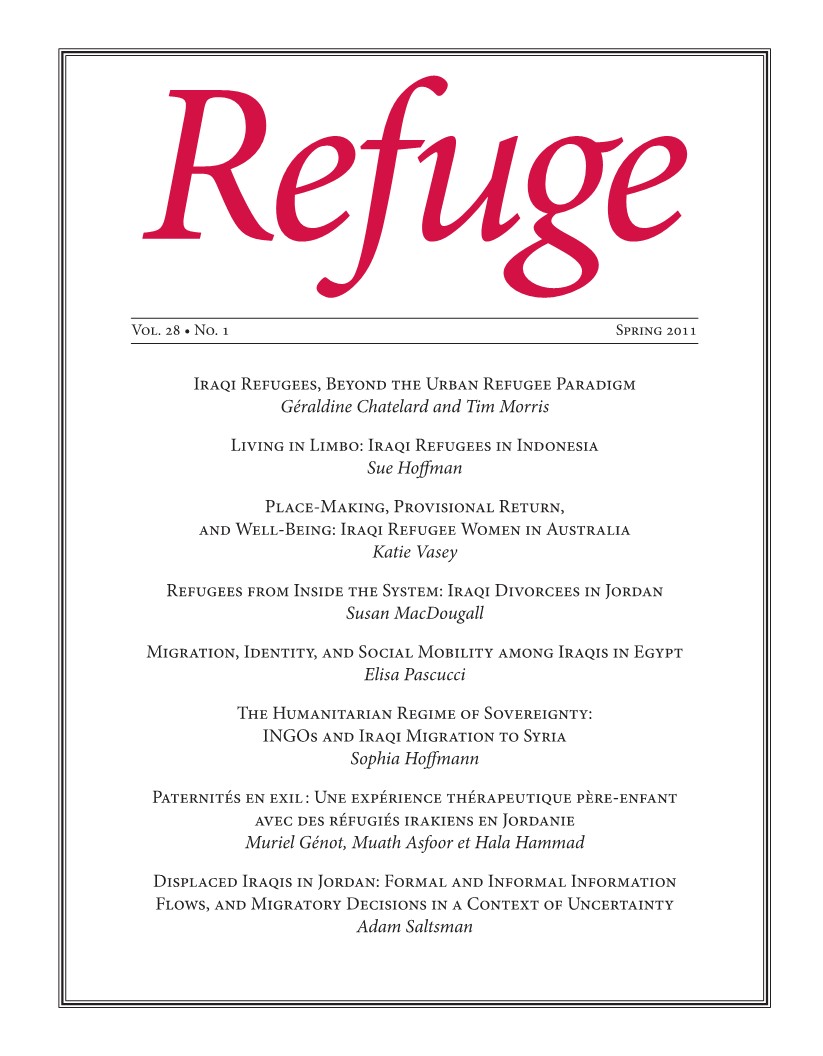Editorial Essay: Iraqi Refugees, Beyond the Urban Refugee Paradigm
DOI:
https://doi.org/10.25071/1920-7336.36083Keywords:
Iraq, Iraqi refugees, forced displacement, urban refugees, policyAbstract
Displacement and exile have been recurrent and durable phenomena affecting Iraqi society for the last 90 years. The process of forming an Iraqi state from the ruins of the Ottoman empire, which Aristide Zolberg has analyzed as a prime factor generating refugee flows, has been ongoing since 1920. Unfinished endeavours to build a state and nation have been characterized by almost incessant antagonistic claims over the nature of the state and national identity, the exercise of and access to political power, control of natural resources and border sovereignty. Political repression, violent regime change, redefinition of national identity, demographic engineering, and domestic or international armed conflicts have resulted in eviction, deportation, denaturalization, political emigration, and flight from violence. A large part of displacement in Iraq has been internal. But vast numbers of refugees and exiles have also formed a regional and global diaspora extending from Iran, Jordan, Israel, Syria, all the way to such distant emigration countries as New Zealand.
Metrics
Downloads
Published
How to Cite
Issue
Section
License
Copyright (c) 2012 Géraldine Chatelard, Tim Morris

This work is licensed under a Creative Commons Attribution-NonCommercial 4.0 International License.
Refuge authors retain the copyright over their work, and license it to the general public under the Creative Commons Attribution-Non Commercial License International (CC BY-NC 4.0). This license allows for non-commercial use, reproduction and adaption of the material in any medium or format, with proper attribution. For general information on Creative Commons licences, visit the Creative Commons site. For the CC BY-NC 4.0 license, review the human readable summary.







